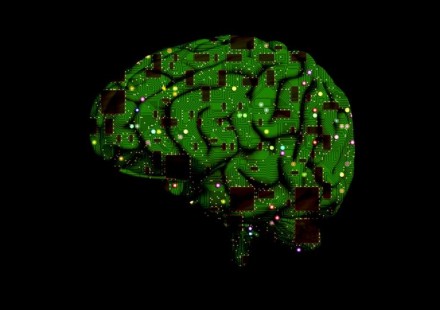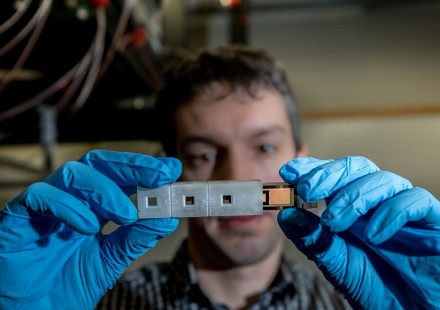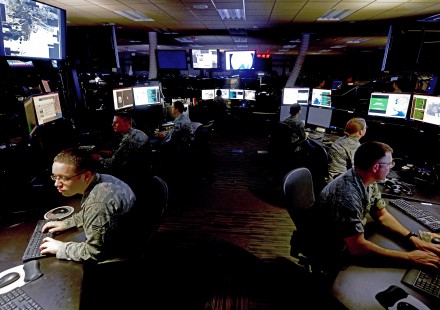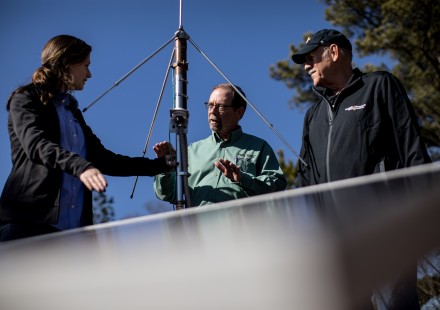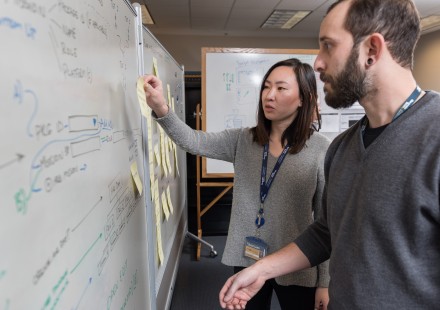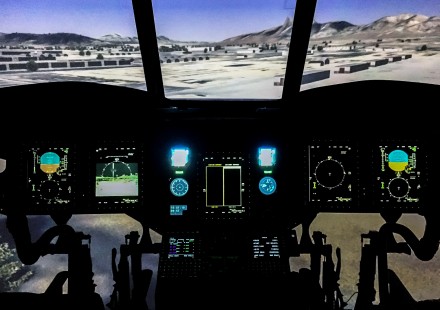Latest News
Distinguished Military Guest Tours the Georgia Tech Research Institute
The Georgia Tech Research Institute (GTRI) hosted the Honorable Mark Esper, the Secretary of the Army, at its headquarters to present GTRI’s distinct portfolio of advanced technologies and demonstration capabilities.
Four Communities Selected for Inaugural Georgia Smart Communities Challenge
This new Georgia Tech-led initiative brings together industry and public agencies to help local governments implement smart development. The strategies developed by the selected communities will serve as models that could be implemented elsewhere across Georgia.
Georgia Tech Team Receives DARPA Grant to Apply Neuroscience to Machine Learning
GTRI Senior Research Scientist Zsolt Kira joins a team of researchers from Georgia Tech, and other local universities, to study how to improve machine learning performance through state-of-the-art neuroscience with support from a grant of up to $2 million, from the Defense Advanced Research Projects Agency’s (DARPA) Lifelong Learning Machines (L2M) program.
Georgia Tech Announces GTRI Leadership Change
Lora Weiss, Regents researcher, deputy director, and chief technology officer at GTRI, has agreed to serve as the interim senior vice president and director of GTRI.
Atomic Magnetometer Could Have Biomedical, Navigation Applications
Measuring very small changes in the brain’s magnetic fields could lead to a better understanding of maladies such as epilepsy, post-traumatic stress disorder, and traumatic brain injury, but the equipment used for such measurements today is bulky and expensive. Scientists and engineers at the Georgia Tech Research Institute (GTRI) want to address that issue by creating a new generation of atomic magnetometers based on clouds of rubidium atoms.
Faster Detection, Cleanup of Network Infections are Goals of $12.8 Million Project
Cybersecurity researchers at the Georgia Institute of Technology (Georgia Tech) have been awarded a $12.8 million contract to develop fundamentally new techniques designed to dramatically accelerate the detection and remediation of infections in local and remote networks. Using novel machine learning techniques that take advantage of large datasets, the researchers will develop ways to detect network infections within 24 hours – before invaders can do serious damage.
Helping the Air Force Search for Actionable Intelligence Worldwide
By modeling the flow of information through the DCGS, the Georgia Tech Research Institute (GTRI) is helping the Air Force continuously improve the Air Force Distributed Common Ground System (AF DCGS), boosting efficiency and enhancing its ability to bring together the massive data sets that quickly provide critical information.
Severe Storms Research Center Works to Improve Tornado Warning Time
Four researchers are part of the Georgia Tech Research Institute’s (GTRI) Severe Storms Research Center (SSRC), and for them, a day without clouds is a day without new information on how deadly tornadoes and severe thunderstorms develop and move across the Peach State.
Human Factors Research Helps Accelerate Mission Planning
The key to a successful flight mission is planning – sometimes several hours of it. Georgia Tech Research Institute (GTRI) specialists in human factors and human-computer interfaces are working with the U.S. Naval Air Systems Command (NAVAIR) PMA-281, Strike Planning and Execution Systems in Patuxent River,
Simulation Supports Program to Help Pilots in Degraded Visual Environments
The U.S. Army and the Georgia Tech Research Institute (GTRI) are working together to develop a simulation in support of the Degraded Visual Environment (DVE) program.

